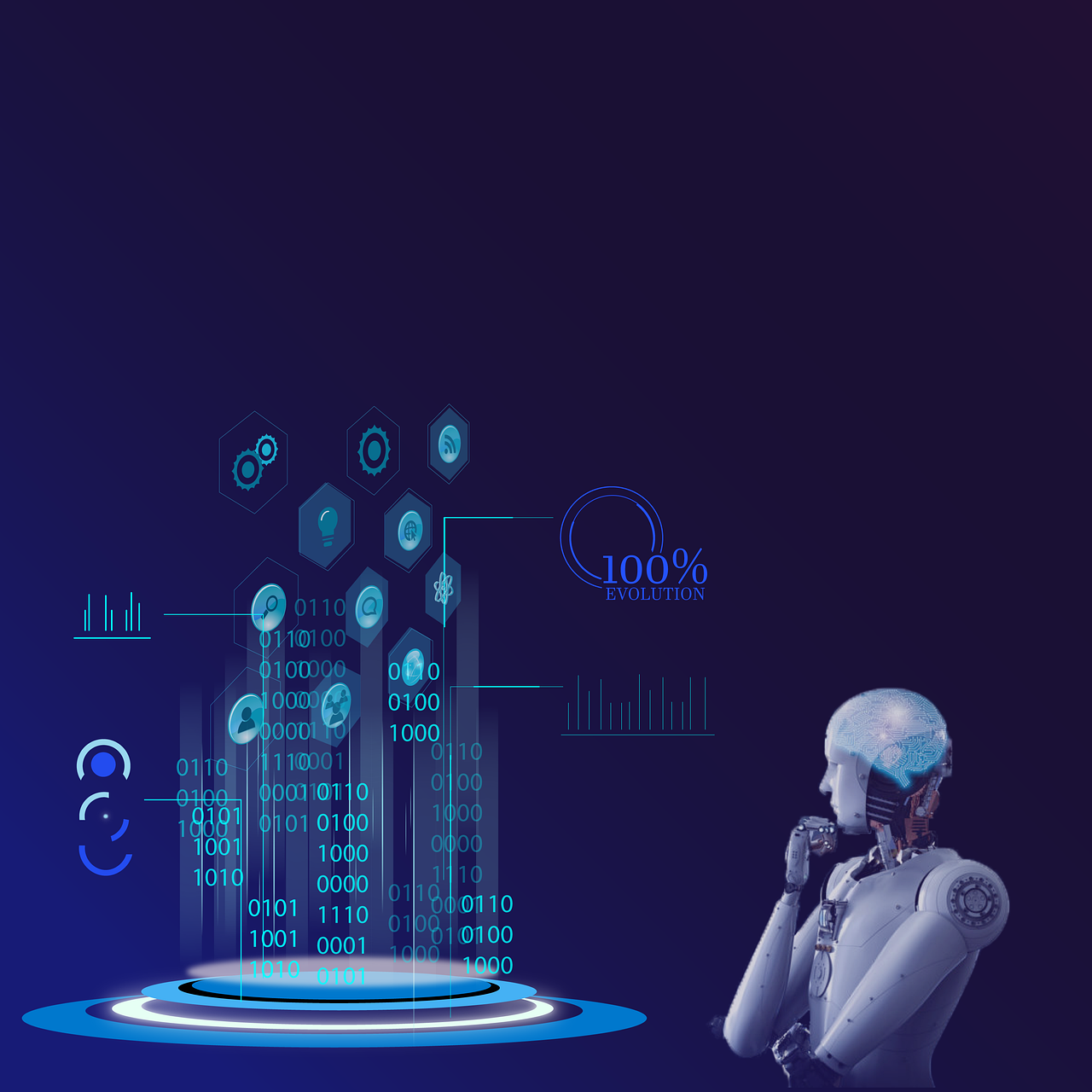It’s no secret that in today’s digital age, personalization is key to successful marketing strategies. Have you ever wondered how artificial intelligence (AI) can revolutionize the way you connect with your target audience? In this blog post, we will explore the transformative power of personalized marketing and how AI technologies can take your marketing efforts to the next level. By harnessing the capabilities of AI, you can truly understand your customers on a deeper level and deliver tailored experiences that resonate with them on a personal level. Let’s dive in and uncover the potential of AI in transforming your marketing game.
The Rise of Personalization
To truly understand the power of personalization in marketing, you need to grasp its rise in recent years. Personalization has become a driving force behind successful marketing strategies, allowing businesses to connect with consumers on a much deeper level. By tailoring content, products, and recommendations to individual preferences and behaviors, companies can create more meaningful interactions with their audience. This shift has been fueled by advancements in technology, particularly AI and machine learning, which enable businesses to analyze vast amounts of data and deliver personalized experiences at scale.
1. How has personalization transformed marketing in recent years?
2. Discuss the role of AI in driving the rise of personalization.
3. What are the benefits of tailoring content to individual preferences?
4. Explore the connection between technology and personalized marketing strategies.
The Evolution of Customer Expectations
Any discussion of personalization must consider the evolution of customer expectations. In today’s digital age, consumers demand more than just generic marketing messages—they expect brands to understand their needs and provide tailored experiences. This shift has been influenced by the rise of online shopping, social media, and personalized recommendations from platforms like Netflix and Amazon. As a result, businesses are under increasing pressure to deliver relevant and personalized content to stand out in a crowded marketplace.
1. How have customer expectations evolved in the age of personalization?
2. Discuss the influence of online shopping on customer demands.
3. Explore the impact of personalized recommendations on consumer behavior.
4. Why is it crucial for businesses to understand and meet customer needs today?
The Limits of Traditional Marketing Approaches
Approaches to traditional marketing are often constrained by their one-size-fits-all nature. Mass marketing tactics, such as generic advertising campaigns, no longer resonate with today’s consumers who seek personalized experiences. This limitation has led many businesses to reevaluate their marketing strategies and embrace personalization to stay competitive in the modern landscape.
1. What are the challenges of using traditional marketing approaches in a personalized world?
2. Discuss the shortcomings of one-size-fits-all marketing tactics.
3. How can businesses overcome the limitations of traditional marketing through personalization?
4. Explore the impact of personalized marketing on customer engagement and brand loyalty.
Approaches to marketing have evolved significantly with the rise of personalization. By leveraging AI-driven technologies, businesses can now tailor their marketing efforts to individual preferences and behaviors, creating a more engaging and relevant experience for customers. This shift has not only transformed how companies interact with their audience but has also opened up new opportunities for driving growth and building long-lasting customer relationships.
The Role of AI in Personalization
Some of the most intriguing applications of artificial intelligence (AI) in marketing revolve around personalization. AI can analyze vast amounts of data to understand customer behavior, preferences, and interests, enabling businesses to tailor their marketing strategies accordingly. By harnessing the power of AI, you can create highly personalized experiences for your customers, leading to increased engagement, loyalty, and ultimately, higher conversion rates.
- Generate personalized product recommendations based on user browsing history.
- Create targeted email campaigns based on customer segmentation data.
- Develop dynamic website content that adapts to individual user preferences.
Machine Learning and Data Analysis
Machine learning plays a crucial role in personalization by enabling algorithms to learn from data and make predictions or decisions based on that data. Through sophisticated data analysis techniques, AI systems can identify patterns and trends in customer behavior, allowing businesses to deliver more relevant and timely content to their target audience.
- Analyze customer purchase history to predict future buying behavior.
- Personalize marketing messages based on sentiment analysis of customer feedback.
AI-Driven Customer Segmentation
Machine learning algorithms can segment customers into distinct groups based on various parameters such as demographics, behavior, and preferences. By leveraging AI-driven customer segmentation, you can target specific customer segments with customized marketing campaigns that resonate with their unique needs and interests, ultimately driving higher engagement and conversions.
- Segment customers based on past purchase behavior to tailor promotions.
- Personalize content based on user interaction with different marketing channels.
Any successful personalization strategy begins with understanding your customers on a granular level. By utilizing AI-driven customer segmentation, you can gain valuable insights into the diverse preferences and behaviors of your target audience. This deeper understanding allows you to craft highly targeted marketing campaigns that resonate with different customer segments, ultimately leading to more meaningful interactions and improved customer satisfaction.
With the advancements in AI technology, the possibilities for personalized marketing are endless. By harnessing the power of AI-driven personalization, you can create unique experiences for your customers that not only meet their needs but also exceed their expectations. Embracing AI in your marketing efforts can truly transform the way you engage with your audience, driving better results and fostering long-lasting customer relationships.
AI-Powered Personalization Strategies
There’s a reason why AI-powered personalization strategies are revolutionizing the marketing industry. By harnessing the power of artificial intelligence, you can create highly tailored and impactful marketing campaigns that resonate with your audience on a whole new level. Let’s explore some key strategies that leverage AI for personalized marketing.
Dynamic Content Generation
Any successful personalization strategy involves delivering the right content to the right audience at the right time. With AI-powered dynamic content generation, you can automatically create personalized content based on user behavior, preferences, and past interactions. This not only saves time and resources but also ensures that your audience receives relevant and engaging content consistently.
- Generate personalized product recommendations based on browsing history.
- Create customized email campaigns tailored to individual preferences.
- Develop personalized website experiences based on user demographics.
Real-Time Recommendations
Any effective personalization strategy includes real-time recommendations that engage users with relevant content or products instantly. With AI algorithms constantly analyzing user data and behavior, you can deliver personalized recommendations in real-time, increasing the likelihood of conversions and customer satisfaction.
- Suggest personalized product recommendations as users browse your website.
- Provide tailored content recommendations based on user interactions.
- Offer real-time promotions or discounts based on customer preferences.
Content
Real-time recommendations are a game-changer in personalization, allowing you to engage with your audience at the most opportune moments. By leveraging AI to analyze user behavior and preferences in real-time, you can deliver tailored content that resonates with each individual, driving conversions and fostering brand loyalty.
- Deliver personalized notifications based on user activity.
- Offer real-time suggestions for related products or services.
- Personalize website experiences in the moment based on user navigation.
Predictive Analytics for Customer Insights
RealTime
Any forward-thinking marketing strategy incorporates predictive analytics to gain valuable insights into customer behavior and preferences. By leveraging AI algorithms to analyze data patterns and predict future trends, you can better understand your customers, anticipate their needs, and tailor your marketing efforts to drive meaningful engagement and conversions.
- Predict customer churn rates and proactively retain at-risk customers.
- Forecast future trends and adjust marketing strategies accordingly.
- Personalize product recommendations based on predictive insights.
Insights
Predictive analytics powered by AI offer a deeper understanding of your customers’ behaviors and preferences, allowing you to anticipate their needs and deliver personalized experiences. By utilizing predictive insights, you can stay ahead of the competition, optimize your marketing strategies, and foster long-lasting relationships with your audience.
- Identify high-value customers and tailor marketing efforts to retain them.
- Forecast customer lifetime value and personalize engagement strategies.
- Anticipate market trends and position your brand ahead of the curve.
The Benefits of AI-Driven Personalization
Once again, AI-driven personalization proves its worth by offering a myriad of benefits that can transform your marketing strategies. By harnessing the power of AI, you can enhance customer engagement, improve conversion rates, and elevate the overall customer experience.
- How can AI-driven personalization improve customer engagement?
- Share examples of AI tools that can enhance customer engagement.
- Explain the role of AI in increasing customer satisfaction.
Increased Customer Engagement
The implementation of AI-driven personalization in your marketing endeavors can lead to increased customer engagement. By tailoring content and recommendations based on individual preferences, behaviors, and past interactions, you can create a more personalized and engaging experience for your audience. This tailored approach builds a stronger connection with your customers, fostering loyalty and driving them to interact more with your brand.
- How does AI-driven personalization impact customer loyalty?
- Provide examples of AI tools that enhance customer engagement.
- Explain the benefits of AI in creating personalized marketing campaigns.
Improved Conversion Rates
Increased conversion rates are another significant benefit of AI-driven personalization. By delivering personalized recommendations, product suggestions, and targeted promotions, you can effectively guide customers through the purchasing journey, nudging them towards making a buying decision. This personalized approach not only enhances the shopping experience but also increases the likelihood of converting leads into paying customers.
- How can AI-driven personalization impact conversion rates?
- Share examples of AI tools that improve conversion rates.
- Explain the role of AI in creating personalized product recommendations.
Increased conversion rates translate to more sales and revenue for your business, showcasing the tangible impact of AI-driven personalization strategies in boosting your bottom line.
- How does AI-powered personalization lead to increased sales?
- Provide examples of AI tools that drive revenue growth.
- Explain the link between AI-driven personalization and business profitability.
Enhanced Customer Experience
For instance, enhanced customer experience is a core benefit of AI-driven personalization. By analyzing customer data and behavior patterns, AI algorithms can anticipate customer needs, deliver personalized recommendations, and provide timely assistance, thereby creating a seamless and enjoyable shopping experience. This heightened level of personalization not only increases customer satisfaction but also builds long-term relationships with your audience.
- How does AI-driven personalization enhance the customer experience?
- Share examples of AI tools that improve customer interactions.
- Explain the impact of AI on creating a personalized customer journey.
To further enhance the customer experience, AI-powered chatbots can offer 24/7 support, quick responses to queries, and personalized recommendations, creating a more efficient and engaging interaction for your customers.
Overcoming Challenges in AI-Powered Personalization
All successful AI-powered personalization strategies come with their own set of challenges. These can range from issues with data quality and integration to concerns surrounding privacy and transparency. Overcoming these hurdles is crucial to harnessing the full potential of AI in your marketing efforts.
Data Quality and Integration Issues
- Generate data quality assessment reports to identify and rectify inconsistencies.
- Integrate data from various sources to create a unified customer profile.
- Use AI algorithms to clean and enrich datasets for improved personalization.
AIPowered personalization can only be as effective as the data it relies on. Ensuring that your data is accurate, up-to-date, and integrated across all touchpoints is necessary for delivering personalized experiences that resonate with your audience.
Balancing Personalization with Privacy Concerns
- Implement strict data protection measures to safeguard customer information.
- Provide transparency on how customer data is collected and used for personalization.
- Offer opt-in mechanisms for customers to control their data usage.
With the increasing focus on data privacy and security, striking the right balance between personalization and privacy is paramount. Your customers expect personalized experiences, but they also value their privacy. Respecting their data preferences while delivering tailored content is key to building trust and long-lasting relationships.
With the evolving landscape of data privacy regulations and increasing consumer awareness, marketers need to navigate the fine line between personalization and privacy with diligence and care to maintain customer trust and loyalty.
Ensuring Transparency and Explainability
- Provide clear explanations of how AI algorithms make personalized recommendations.
- Offer customers insight into why they are being targeted with specific content.
- Create transparency reports to showcase the impact of personalization on customer experience.
This next subsection researchs into the importance of ensuring transparency and explainability in your AI-powered personalization efforts. By making the inner workings of your algorithms understandable to your audience, you can build credibility and trust, enhancing the overall customer experience.
An necessary aspect of maintaining trust and credibility in your AI-powered personalization strategies is the ability to explain to your customers how their data is used to tailor content and recommendations. This transparency not only fosters customer trust but also empowers them to make informed choices about their interactions with your brand.
To effectively harness the power of AI in personalized marketing, it’s crucial to address these challenges head-on. By prioritizing data quality, privacy considerations, and transparency, you can create a personalized experience that not only engages your audience but also builds trust and loyalty over time.
Implementing AI-Driven Personalization in Your Marketing Strategy
Not only does AI-driven personalization help you connect with your audience on a deeper level, but it also enhances your marketing efforts by delivering tailored content and experiences. Implementing AI into your marketing strategy can seem daunting at first, but breaking it down into manageable steps can make the process smoother and more fruitful. Here are some crucial steps to help you effectively integrate AI-driven personalization into your marketing strategy:
1. How can AI improve customer segmentation for personalized marketing campaigns?
2. What are the best practices for using AI to personalize email marketing content?
3. How can AI optimize website personalization for better user engagement?
4. In what ways can AI enhance social media marketing through personalized interactions?
Assessing Your Current Marketing Infrastructure
AIDriven personalization begins with analyzing your current marketing infrastructure to identify areas where AI can be integrated effectively. By conducting a thorough assessment of your existing tools, data sources, and customer touchpoints, you can determine the gaps that AI-driven solutions can fill to improve personalization and customer engagement.
1. How can AI help in analyzing customer data to personalize marketing strategies?
2. What are the key indicators that suggest a need for AI-driven personalization in your marketing infrastructure?
3. How can AI enhance customer journey mapping for personalized experiences?
4. What are the challenges and opportunities of integrating AI into your current marketing technology stack?
Selecting the Right AI Tools and Partners
Strategy begins with selecting the right AI tools and partners that align with your marketing objectives and organizational needs. Choosing AI solutions that offer robust personalization capabilities, scalability, and compatibility with your existing systems is crucial for successful implementation. Additionally, partnering with experienced AI providers who understand your industry and can offer tailored solutions will optimize the benefits of AI-driven personalization for your marketing efforts.
1. How to evaluate AI tools for their personalization features and capabilities?
2. What are the key factors to consider when selecting AI partners for personalized marketing solutions?
3. How can AI vendors customize their solutions to meet the unique needs of your marketing strategy?
4. What are the best practices for onboarding AI tools and partners into your marketing team?
When identifying the right AI tools and partners, it’s crucial to consider factors such as the scalability of the AI solution, the level of customization available, and the expertise of the partner in your industry. By choosing the right tools and partners, you can ensure a seamless integration of AI-driven personalization into your marketing strategy, leading to improved customer engagement and conversion rates.
Developing a Personalization Roadmap
Marketing is all about connecting with your audience in meaningful ways, and personalization is the key to unlocking those connections. Developing a personalization roadmap involves strategizing how AI can be leveraged to deliver customized experiences across various marketing channels. By outlining clear objectives, defining key performance indicators, and establishing a timeline for implementation, you can create a roadmap that guides your team towards successful AI-driven personalization.
1. How to create a personalized content strategy using AI technologies?
2. What are the steps involved in developing a data-driven personalization roadmap?
3. How can AI be used to automate the personalization of marketing campaigns?
4. What are the key considerations when aligning your personalization roadmap with overall marketing goals?
Infrastructure plays a crucial role in developing a personalization roadmap, as it dictates how data is collected, analyzed, and utilized to deliver personalized experiences. By ensuring that your marketing infrastructure is equipped to support AI-driven personalization initiatives, you can lay a strong foundation for implementing personalized marketing strategies that resonate with your audience.
Your journey towards AI-driven personalization begins with a clear understanding of your current marketing infrastructure, the right selection of AI tools and partners, and the development of a strategic roadmap for personalized marketing initiatives. By following these steps and leveraging the power of AI, you can transform your marketing efforts and enhance customer engagement like never before.
Conclusion
With these considerations in mind, it is clear that AI-powered personalization can significantly transform your marketing efforts. By leveraging AI technology, you can more effectively target your audience, create tailored messages that resonate with individuals, and ultimately drive higher engagement and conversions. Embracing personalized marketing powered by AI can give you a competitive edge in today’s fast-paced digital landscape.
As you continue to explore the possibilities of AI in marketing, remember that the key to success lies in understanding your audience, utilizing data insights effectively, and staying adaptable to evolving trends and technologies. By incorporating personalized strategies powered by AI into your marketing approach, you can create more meaningful connections with your customers and achieve greater marketing success in the long run.





0 Comments